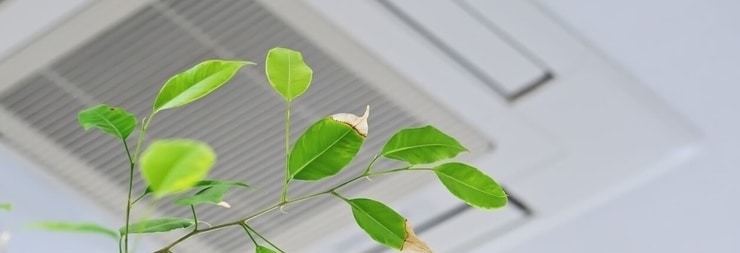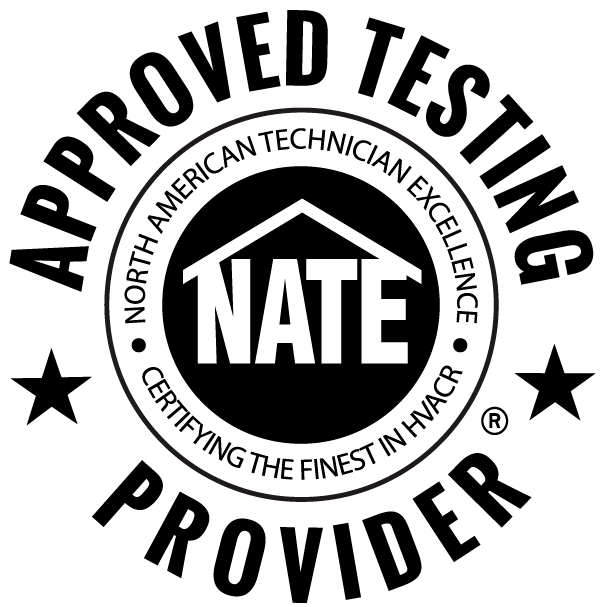Living in a modern world, it’s easy to take many things for granted, such as electricity, running water, and technological devices. It’s also easy to forget about another relatively modern comfort — air conditioners. But, when they malfunction, it’s the only thing you can think about. After all, they are a necessity in Florida. So if you’re hearing water dripping in your AC vents, you may be worried. What does it mean? How can you fix it? And what’s causing it in the first place?
What causes condensation in air vents?
Before cooling your home, an air conditioner absorbs the warm air indoors and removes the moisture from it, before using refrigerant to cool it. Once this moisture is removed, water droplets drip from the AC coils into a part of the system called the drip pan. Once the drip pan is full, the water is siphoned outdoors through what’s called a condensate line.
There are several things that could block this process from occurring smoothly. When the process is interrupted, condensation inside the system may accumulate or freeze — two scenarios that will result in water dripping around the vents.
5 Causes of Water Dripping From AC Vents
Without further ado, below are five reasons why your AC may be dripping water around the air vents:
1. Dirty air filter
In order to keep your air conditioner working optimally, you should change the air filter every 30 to 90 days, taking into account factors such as how many people live in your home, whether you have any pets, allergy sufferers, or smokers in your household, or whether you live in a highly polluted area. Failing to do so will cause dust particles and debris from the air to accumulate on the AC coils. This blocks airflow and causes condensation to freeze. As a result, you’ll have an air conditioner that won’t cool well enough, higher energy bills — as your AC works harder through a block of ice — and water to drip from the coils as it starts to melt.
2. Damaged or rusted drain pan
The average lifespan of a central AC system can range between 15 and 20 years. This doesn’t mean that its parts will last as long. It’s possible for the drain pan to rust — especially if you don’t provide your AC with regular maintenance or if your area is particularly humid. If this occurs, water will drip out of it. Fortunately, you can purchase a new one from a hardware store. However, it behooves you — and your AC, home, and family — to have a licensed HVAC technician inspect your system to install it properly and prevent it from happening again.
3. Broken condensate pump
When condensation falls into the drain pan, it keeps accumulating until the pan is full of water. As the water level rises, a float keeps going up. Once full, the float hits the condensate pump switch — turning it on to keep the tank from overflowing. Regular wear and tear — or accumulated gunk — may prevent the float from rising. The drain pan will then overflow, causing your AC to drip water around the vents.
4. Clogged condensate line
Just as you have to change the air filter regularly to prevent debris buildup from blocking airflow, you should regularly clean the inside of the condensate line. Think about it — it’s a small, enclosed area that’s constantly wet. It’s the perfect circumstances for mold growth and sludge to set up shop. Every month, flush it with one cup of distilled white vinegar, hot water, peroxide, or bleach. For step by step directions, read our blog: How To Clean AC Drain Line With Vinegar.
5. Inadequate duct insulation
If the insulation around your air conditioner’s air ducts is insufficient or damaged, the warm air surrounding the ducts will cause condensation to form inside of them — as well as on the vents. In addition to water dripping in your vents, it could also lead to mold growth, which affects the air quality as well as the structural integrity of your home. To find out if this is the case, contact an experienced HVAC technician for an inspection.
AC Service in Brevard County
At Colman Air, we understand that sometimes, AC issues happen during the most inconvenient times. This is why we have a 24/7 AC emergency line. Call us if you need assistance ASAP, or to schedule routine HVAC maintenance.
24-HR Emergency Service: (321) 269-4565







Leave a Reply